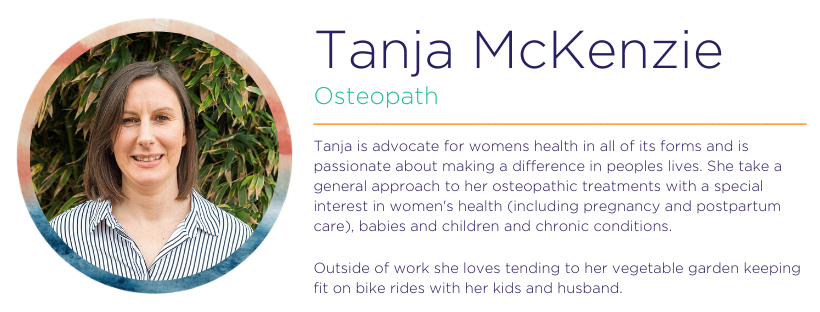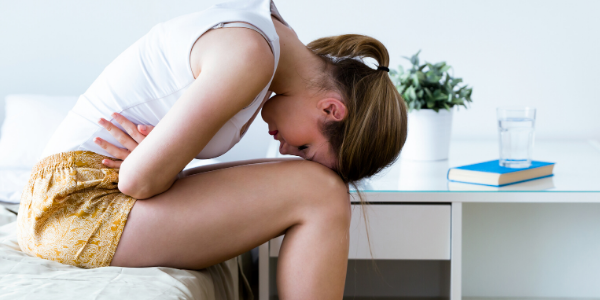March is Endometriosis awareness month. We asked our Osteopath Tanja, what is Endo and how to ease the symptoms.
What is Endometriosis?
It has been estimated by Endometriosis Australia that more than 10% of Australian women suffer from endometriosis. Endometriosis is a condition that occurs when the lining of the uterine cavity (endometrial tissue) grows outside the uterus. Endometrial tissue can grow on your ovaries, bowels, fallopian tubes, bladder, ligaments inside your pelvis, the vaginal walls and very rarely places like the lungs and heart too. The endometriosis is very sticky and often sticks organs together. Hormonal changes in your menstrual cycle affect the misplaced endometrial tissue causing the area to become inflamed and painful.
What are the symptoms of Endo?
The symptoms of endometriosis can vary from mild to severe. Some women with endometriosis have no symptoms at all. The most common symptom is pelvic pain. You may also have one of the following symptoms:
- Painful periods
- Pain in the lower abdomen before and during menstruation
- Cramps one or two weeks around menstruation
- Heavy menstrual bleeding or bleeding between periods
- Infertility – 50% of women with infertility have endometriosis
- Pain following sexual intercourse
- Discomfort with bowel movements or urination
- Lower back pain that may occur at any time during your menstrual cycle
What Causes Endometriosis?
The exact cause of endometriosis is unknown. Genetic factors, hormonal imbalance, previous surgeries involving opening into the uterine cavity, eg. C-section and nutrition and lifestyle factors play a big role.
How is Endo diagnosed?
For many women in Australia, it can take up to 7-10 years to get a correct diagnosis often because the symptoms can vary between women and can change over time. The gold standard for diagnosing endometriosis is via laparoscopic surgery where a biopsy is performed. This is a surgical procedure performed under general anaesthetic where a thin telescope is placed inside your abdomen via an incision in the belly button. This allows your doctor to see inside your abdomen and assess your pelvis and surrounding organs. Tissue potentially containing endometriosis is removed and sent off to pathology to be viewed under a microscope and confirmed.
What is the treatment?
There are many different treatments available for endometriosis. The management of it is multi-disciplinary and involves many health professionals offering a range of ways to help manage chronic pain. The team of professionals that may help include: a GP, gynaecologist, physiotherapist, osteopath, nutritionist, psychologist, pain specialist and other complementary therapies like Chinese Medicine and fertility massage.
Unfortunately, there is no cure for endometriosis. Pain relief medication such as paracetamol and anti-inflammatories may assist with pain. Hormone therapy such as the oral contraceptive pill and progestins are used to try and slow down the growth of endometriosis and suppress the cycle to minimise pain. A change in lifestyle including dietary and exercise changes may also help with the pain.
Some women choose to have laparoscopic surgery to remove the endometrial tissue and adhesions from the pelvic region. If the endometriosis has infiltrated other organs a more invasive operation called a laparotomy may be performed. For severe endometriosis where hormonal therapies and previous surgeries have not improved quality of life a hysterectomy may be considered.
What can you do?
If you think you may have endometriosis it is important to talk to your GP and get a referral to a gynaecologist. Whilst painful periods are common, they are not normal.
Often with inflammation in the body, there is a protective muscle spasming that occurs. Osteopaths can detect these changes in the muscles and help with relieving the spasm and increasing the local drainage in the pelvis to help the body reabsorb the excess inflammation. The Osteopaths at WBHW would love to help support you in your management of endometriosis. If you would like to meet with one of our practitioners to discuss your situation call us on 03 5200 1044 or book online HERE
About the author:

